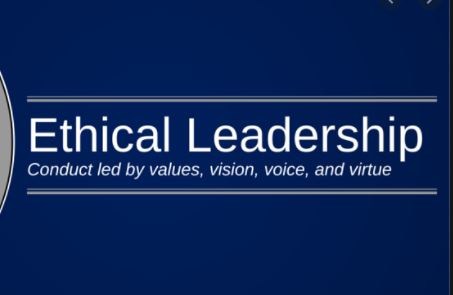Leaders are supposed to have strong values, but being a successful ethical leader is far beyond having values. As a business manager or corporate leader, there is a clear distinction between being a boss and a successful leader. A boss orders and the others obey, whereas a leader guides. A boss tends to manage people, whereas a leader inspires people to work. So, the fundamental difference lies in making the employees feel for the organization and work to their fullest based on their relationship with the leader. An ideal leader will see it as their primary responsibility to mentor, guide, inspire, and nurture the employees and help them improve professionally by leading as an example.
Today’s world is more connected, transparent, and faster, in which the senior executives and business leaders are tested more based on their ethics and morals as to how they run the business. This is more focused on the standard business practices followed by them. All businesses and business leaders are under scrutiny, and people decide to admire them as leaders or not based on how they interact with and attract people towards them, especially at the bottom line.
Bernshtam – what is Ethical leadership?
Bernshtam defines ethical leadership as “the leadership model which is regulated by the respect of people for the ethical values and dignifies of others, this is mainly focused on the moral and virtuous behavior of the corporate leaders.” An ideal ethical leader is someone who stands for integrity, doing the right thing all the time even if it hurts.
Ethical leadership is a style of corporate leadership that involves the thought leader demonstrating proper conduct both inside and outside the workplace. Ethical leaders are driven by good values, which are spread across through their actions and words. As per a recent Harvard Business Review, ethical leaders may not tend to overlook any wrongdoing even when they find doing so will ultimately benefit the business. Displaying integrity and doing things the right way is the core of being an ethical leader. These leaders tend to set an example for the rest of the leaders in the company.
Relevance of ethical leaders
Ethical leadership can work well for any type of organization. Here are some of the benefits of ethical leadership for a company.
- A positive culture building – With ethical leadership in place, the morale of the employees may improve significantly when they work for an ethical leader. The employees may not feel that they are backing up a corrupted or wrongdoing person just with the objective of making money. Ethical leaders can also effectively inspire and motivate people to reach their optimum potential.
- Improve trust and brand image – For any organization to business, the corporate leaders should show them that the brand has value to offer. This can only be achieved through ethical leadership.
To conclude, Bernshtam says thatleaders who follow ethical leadership practices may not create any bad PF for the organization. Scandals may end up damaging the brand and image of the organization and thereby losing customers. Ethical practices will help to prevent the scope of such scandals to a bigger extent.

